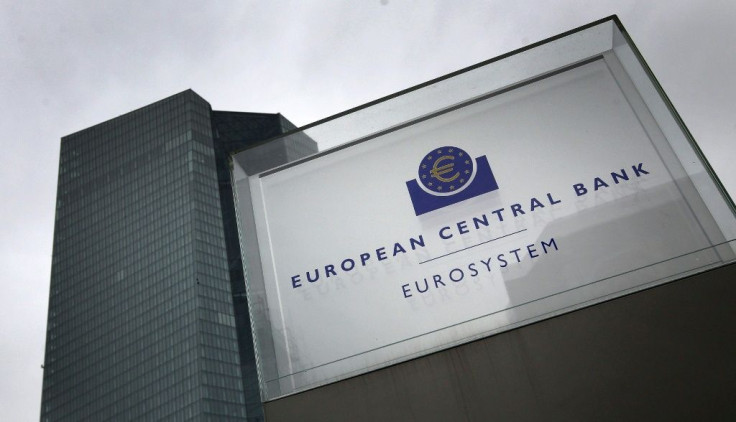ECB Eases Bank Funding Rules In 'Unprecedented' Step
The European Central Bank on Tuesday announced an "unprecedented" easing of collateral requirements in a bid to boost bank lending during the coronavirus crisis.
The package of measures aims to "mitigate the tightening of financial conditions across the euro area" and includes the use of loans from small companies as collateral as well as junk-rated Greek sovereign debt.
The announcement by the ECB's governing council is the latest in a series of drastic steps by the Frankfurt institution to keep cash flowing through the financial system as the pandemic batters the global economy.
The governing council described the collateral measures as "unprecedented" and "temporary for the duration of the pandemic crisis".
Among the most eye-catching decisions was that the ECB would grant a waiver to accept Greek bonds as collateral, for the first time in almost two years.
Greek banks usually have a hard time raising funds on financial markets because the debt-laden government's bonds have the lowest, junk rating meaning investors may not be repaid.
Tuesday's announcement comes after the ECB last month said that Greek bonds would for the first time be included in a new wave of asset purchases designed to keep credit flowing in the 19-nation euro area.

The easing of the rules will also see the ECB accept loans from even small entities as collateral.
The ECB said it would accept "loans with lower credit quality" and foreign-currency loans.
The bank specifically said it would accept collateral in the shape of government-backed guaranteed loans to small- and medium-sized companies, self-employed people and households, after countries such as Germany offered to fully underwrite such loans to keep companies afloat in the crisis.
The governing council also agreed to "increase its risk tolerance level" by accepting a cut on the amount of collateral needed for refinancing, making it easier for banks to borrow at the ECB's ultra-low rates.
The ECB has in recent weeks joined other central banks in opening the financial floodgates as the world braces for the biggest economic crisis since the financial crash of 2008-2009.
Efforts to halt the pandemic have confined millions of people to their homes, closed businesses and brought economies to a grinding halt.
The ECB last month unveiled a "big bazooka" 750 billion euro bond-buying scheme to encourage spending and investment in the region.
It came on top of an earlier pledge to spend an extra 120 billion euros on asset purchases this year, as well as keeping up the current pace of hoovering up 20 billion euros a month in government and corporate bonds.
As part of the coronavirus fightback, the ECB has also announced a fresh round of ultra-cheap loans to banks and more generous terms to entice lenders to grant loans to small businesses, seen as particularly vulnerable in the current upheaval.
© Copyright AFP 2024. All rights reserved.





















